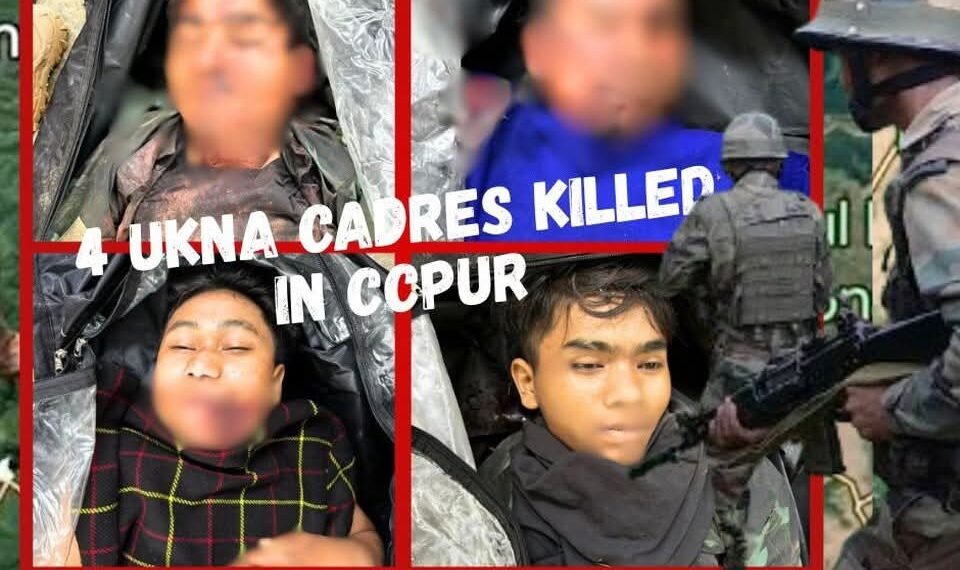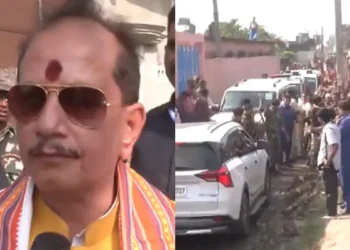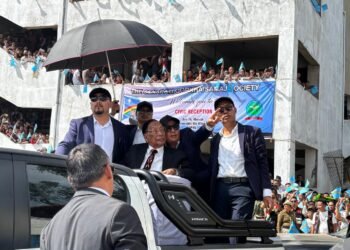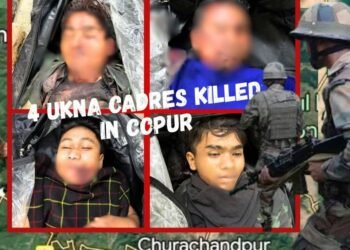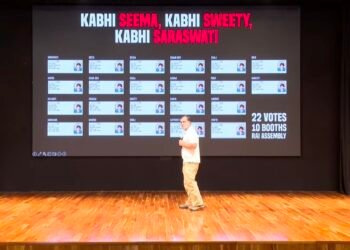Rejecting the Indian government’s characterization of the UKNA as a terrorist outfit, KLA-L asserted that its members are “sons of the soil” fighting for a constitutionally guaranteed right to self-determination. The group accused New Delhi of weaponizing terminology to delegitimize indigenous political movements in Manipur’s hill districts.
BY PC Bureau
November 5, 2025: The Kuki Liberation Army-Letkholun (KLA-L) has issued a scathing rebuttal against the Indian Army, alleging that members of its allied group — the United Kuki National Army (UKNA) — were killed “while asleep” during a recent counter-insurgency operation. The outfit has called the incident an act of extrajudicial execution and demanded a judicial or international investigation into what it termed a “grave breach of military protocol and human decency.”
The statement, dated November 4, 2025, was released by the KLA-L’s Department of Information and Publicity and signed by its Secretary, Jalaimang Kuki.
‘Sons of the Soil’ Not Terrorists, Says KLA-L
The KLA-L press note begins by sharply criticizing the Ministry of Defence for what it called the “mischaracterization” of the UKNA as a terrorist organization.
“The UKNA is a group of sons of the soil demanding a separate administration within their ancestral land in Manipur — a legitimate right enshrined in the Constitution of India,” the statement read.
“This labeling is factually inaccurate, legally untenable, and violates fundamental human rights.”
The organization accused the central government and security agencies of attempting to delegitimize indigenous self-determination movements by branding them as extremist or terrorist outfits. According to the KLA-L, such terminology not only distorts the political context of their struggle but also provides a pretext for military excesses in civilian areas.
Allegations of Extrajudicial Killings
The crux of the KLA-L’s allegation lies in the claim that the UKNA personnel killed during the recent operation were asleep at the time of the raid, and therefore unarmed and defenseless.
“Reports indicate that the armed men were killed while asleep, rendering them defenseless and hors de combat,” the release said, using a term from international humanitarian law that refers to combatants who are out of action and should therefore not be targeted.
It further added: “Such a cowardice displayed in taking out unarmed or sleeping individuals is tantamount to extrajudicial killings, reprehensible and unacceptable. It constitutes a grave breach of international humanitarian law and human rights norms.”
The outfit alleged that the killings amount to a violation of the Geneva Conventions, which prohibit attacks on combatants who are not engaged in active hostilities. The statement framed the alleged act as part of a larger pattern of what it described as the militarization of the Kuki heartland under the pretext of counter-insurgency.
READ: Manipur: Kuki-Zo Council, COTU Silent on UKNA Killings
READ: Crisis in NSCN (I-M): Muivah Battles Rebellion Within the Ranks
A Call for Dialogue and Accountability
The KLA-L urged the Indian Army to “retract this misleading characterization” and engage in constructive dialogue with representatives of the “sons of the soil” to address what it called legitimate political and ethnic grievances. The statement invoked both the Indian Constitution and international human rights standards to argue that the Kuki people’s right to self-determination and protection of their ancestral lands must be recognized.
“The rights of indigenous peoples to self-determination and protection of their land must be respected and upheld in accordance with the Constitution of India and international human rights standards,” it declared.
The group demanded that the government order a thorough investigation into the circumstances surrounding the killings and hold those responsible accountable.
“Until then, the Indian Army’s actions will be viewed with suspicion and skepticism,” the statement warned.
The Army, on the other hand, maintains that it acts within the framework of law and is targeting armed insurgents responsible for attacks on security personnel and civilians.
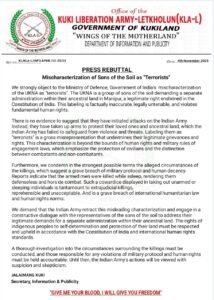
Echoes of Past Controversies
Allegations of extrajudicial killings have long shadowed counter-insurgency campaigns in Manipur. Human rights organizations such as Amnesty International and Human Rights Watch have repeatedly documented cases of alleged fake encounters, particularly under the Armed Forces (Special Powers) Act, 1958 (AFSPA).
Although AFSPA grants broad powers of search, seizure, and arrest to the armed forces, it has also drawn criticism for shielding personnel from prosecution without prior sanction from the central government.
The Supreme Court of India, in its landmark 2016 ruling, ordered the investigation of more than 1,500 alleged fake encounter cases in Manipur — a process still underway. Against this backdrop, the KLA-L’s claims are likely to revive concerns about accountability and oversight in ongoing military operations.
In closing, the KLA-L’s statement appealed to international human rights bodies to take note of the “systematic misrepresentation” of indigenous Kuki resistance groups.
For now, Manipur remains on edge. With allegations of rights violations and counter-claims of militant aggression, the gap between the state and the hill communities continues to widen — and trust between the Indian Army and local populations remains at its most fragile since the outbreak of violence two years ago.


